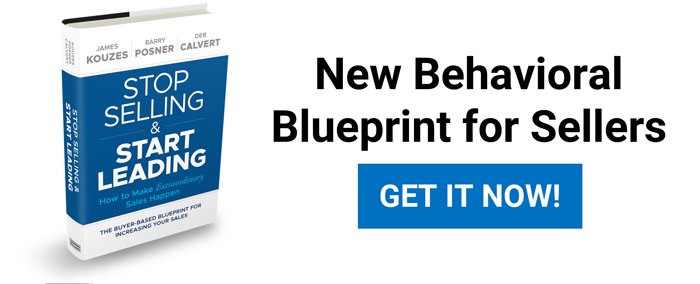The Selling Skills Your Buyers Really Want to See
Selling skills training and books typically focus on accomplishing the sales goal: how to open the sale, close the sale, overcome the objection... It's sales focused.
But what about the skills that buyers would like to see sellers exhibiting? Doesn't it make more sense to build skills that buyers appreciate, expect and reward?
Webinar: What Do Buyers Want?
Some so-called sales skills do more un-selling than selling. Here are five that buyers recognize and react negatively to:
- Attempting to open the sale by reading a canned script that's all about your product and "value proposition."
- Asking self-serving qualification questions instead of having a natural conversation.
- Treating buyers as if they aren't capable and informed
- Opportunistically pouncing on the first hint of a need.
- Pitching irrelevant features or making assumptions about benefits.
Our research with 530 B2B buyers revealed that sellers are missing the mark. Buyers want to interact with people, not sellers. They don't want slick sales-y behaviors. They'd much rather work with sellers who are present, paying attention, responding to the current conversation and demonstrating genuine interest.
Why does it matter what buyers want to see? Only because buyers are more likely to meet with and more likely to buy from sellers who demonstrate these preferred behaviors most frequently...
Buyers Value Communication Skills More than Selling Skills
Buyers aren't impressed by your trial closes, your negotiating prowess, your closing rate or other sales-related skills. Unless those skills are coupled with top-notch listening, question-asking, comprehension. presentation and feedback skills, they could actually backfire.
Before you can open a sale, you have to open a conversation.
Before you can craft a solution, you have to understand the needs and the nuances of those needs and their individual impact, too. The only way to learn about those needs is by asking questions and listening for content and feeling. Skating through this part of the process will cost you the sale every time.
To close the sale, you have to convey value. Over the course of the buyer/seller relationship, you'll need to give and receive feedback if you expect to maintain the business.
It's all about communication. This is the most critical differentiating factor. Buyers expect two-way communication, a dialogic interaction. Sellers who want to create value and earn time with buyers work to become strong communicators.
Buyers Value Emotional Intelligence More than Selling Skills
Don't dismiss the importance of soft skills when it comes to genuinely connecting with buyers. Every sale begins with a connection, and every connection begins with an emotional response.
Buyers are people first and foremost. They want to be understood. They want to work with people who invest in them rather than merely transacting with them. They want to feel confident and trusting about the sellers they do business with.
Connection. Trust. Rapport. Empathy. These bonds are no longer optional. Buyers demand no less.
Global sales powerhouse and Sales Gravy CEO Jeb Blount wrote about this in his newest book, Sales EQ. Blount shows how the top 1% of sellers are responding to the changing sales climate by developing emotional connections with buyers.
Our research affirms his conclusions and go one step further, defining the 30 specific behaviors that buyers want to see sellers exhibiting more frequently. Among the behaviors that require emotional intelligence:
- The seller treats others with dignity and respect.
- The seller asks for feedback on how his/her actions affect the buyer's decisions and outcomes.
- The seller praises people for a job well done.
- The seller asks "what can we learn?" when things don't go as expected.
Buyers Respond to Leadership Skills More Favorably than They Respond to Selling Skills
The behaviors listed above, along with the other 26 buyers desire, are behaviors more often associated with leadership than sales.
That's why we call this the Stop Selling & Start Leading® movement. In order to sell more, sellers need to replace stereotypical sales behaviors with leadership behaviors. Buyers emphatically express their disdain and disappointment in sales behaviors that are off putting. By contrast, they express delight and anticipation for meeting with sellers who demonstrate leadership behaviors.
You've experienced this yourself. As a buyer, you, too, prefer to be enabled and encouraged and inspired and challenged. The Five Exemplary Practices of Leaders® are well-established as being effective in engaging followers. Our B2B buyer research used these same leadership practices and behaviors. Like followers in any other relationship, buyers want sellers to amp up the frequency of 30 critical behaviors (grouped into five practices).
There's an added bonus for sellers who adopt these leadership behaviors. Stepping into a leadership role is ennobling and puts a little swagger back into your step. Becoming a leader and shedding the old icky sales behaviors that no longer work feels good and works to accomplish your sales goals, too.


